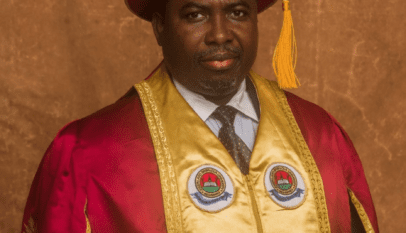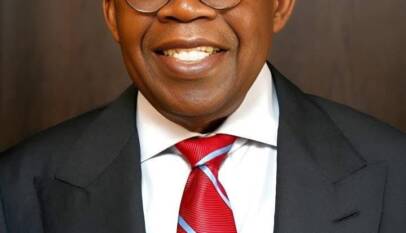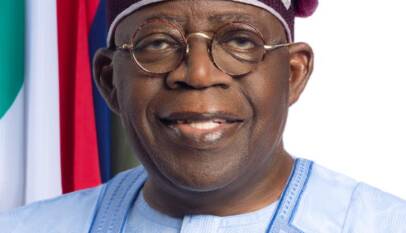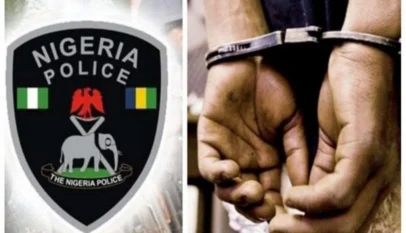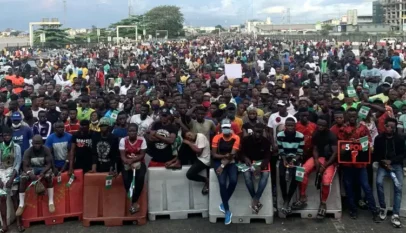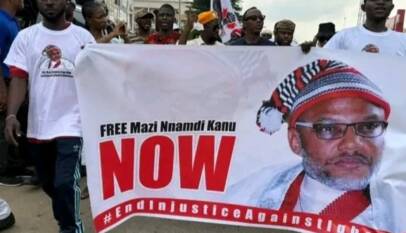By Oghenekevwe Kofi, L.M. Ericsson Nigeria
Nigerians are active on social media and in the streets, often criticizing politicians for the country’s issues. However, during elections, where they can alter the narratives with their votes, the loud complaints fade, and voter turnout is low, especially among the youth who yearn for change.
Voter apathy is a persistent problem in Nigeria, particularly in off-cycle gubernatorial elections. Recent elections show that only about 10 per cent of the electorate determines the outcomes.
In states like Anambra, Bayelsa, Ekiti, Imo, Kogi, Osun, Ondo, and Edo, low voter turnout is common despite high numbers of registered voters and PVC collections. This raises concerns about election credibility and leader acceptability.

Additionally, many registered voters do not pick up their PVCs. Before the 2023 presidential elections, INEC reported 6.7 million uncollected PVCs in 17 states, with 1.6 million in Lagos alone. This number is significant compared to the 24.9 million Nigerians who voted in the election that elected Bola Ahmed Tinubu as President.

Infographic: How the major political parties fared in the 2023 presidential election
The situation led many analysts to question the efficacy of voter strength in some areas. It was an open secret that registered voters in certain areas were vague, with deliberate plots to allocate numbers to dominant politicians and their parties during elections. In Delta State, votes from riverside communities often defy common sense, as remote villages with no social amenities or access roads produce incredible (literally) votes, famously known as ‘Kano votes’. These remote villages often churn out more votes than densely populated cities.
It is believed that these overestimations have also crept into the PVC era, raising doubts about the credibility of INEC’s registration exercises nationwide. Reports of underaged and deceased voters being registered by unscrupulous politicians, coupled with low voter turnout, have raised questions about the credibility of the voter register.
Nevertheless, this cannot excuse the underwhelming turnout of voters during recent off-cycle elections, as evident below:
Anambra: Out of 2,466,638 registered voters, only 253,388 (10.3%) were accredited to vote. Despite a competitive race in which Charles Soludo of the All Progressives Grand Alliance (APGA) emerged victorious with 112,229 votes, the turnout starkly contrasts the high number of registered voters, highlighting potential issues with the integrity of the voter roll.
Bayelsa: Voter turnout paints a similarly grim picture. Of the 1,056,862 registered voters and 1,017,613 PVC holders, Governor Diri won with 175,196 votes.
Ekiti: Experienced modest competition, but the turnout was still lacklustre. For a state with 988,923 registered voters, only 363,438 were accredited—a turnout rate of 36.8%. Biodun Oyebanji’s victory with 187,057 votes was significant, but the discrepancy between registered voters and participation underscores voter apathy.
Imo State: With 2,419,922 registered voters and 2,318,919 PVC collections, recorded dismal participation. Hope Uzodinma secured victory with 540,308 votes.
Kogi: Of the state’s 1,932,654 registered voters, Usman Ododo won with 446,237 (about 22%) votes, representing a participation level far below expectations. While the discrepancy may indicate possible voter database unreliability, it is still a far cry from what the true number could be.
Osun: Osun’s election was relatively competitive, with the PDP candidate securing 403,371 votes against 375,027 for the APC runner-up. Yet, with 1.95 million registered voters, the turnout was still under a third of the registered voters, despite the wide excitement about that election and the mobilisation by various interest groups in the state.
Ondo: The voter turnout was glaringly low. Aiyedatiwa’s victory with 366,781 votes came from a total of just 497,077 valid votes. With over 2 million registered voters, the figures show that less than a quarter of the electorate decided the occupant of Alagbaka Government House, Akure, for the next four years. Aiyedatiwa’s landslide victory is tainted by the low turnout and raises the question of what could have been if the stay-at-home voters had risen to the occasion.
Edo: The election was even worse for turnout. Although the over 565,000 accredited voters bettered the aforementioned states, it is pitiably low when compared to the actual registered voters (2.590 million registered) and PVC collected (2.249 million). The winner and current governor, Sen Monday Okpebholo’s 291,267 votes, indicated that he was only acceptable to 13% of PVC holders in the state. Nearly 2 million PVC holders shunned the election, leaving less than 600,000 voters to choose for them.
Key Factors Contributing to Voter Apathy:

Photo: INEC Chair, Mahmood Yakub needs to do more to earn the electorates’ trust
Violence/Thuggery: Widespread violence and fear of electoral violence discourage voters from participating. Many fear for their safety during elections, especially with political thugs and the proliferation of firearms. Despite the use of PVC, ballot box snatching is still a feature of elections, particularly by crooked politicians who try to disrupt votes in their opponents’ strongholds.
Distrust of Electoral Process: Mindsets that are built over time are difficult to change. A large ratio of Nigerians do not trust the election body, INEC. Voters, especially the youth, believe that votes do not count but are allotted to the highest bidder or chosen candidates by the election body. But also important is the lack of understanding about how election works. Most youths, especially the so-called Gen Z, expect that their candidate should always win, irrespective of what others do or say. So, once their chosen candidate in an election loses, they blame it on rigging and then stay away from the next circle.
Lack of Mobilization: Political parties and civic groups fail to adequately inspire voters’ interest or engage the electorate. It is believed that politicians deliberately encourage voters to outsource their franchise, as it makes it easier for them to manipulate the process.
Overbloated Voter Register: A critical issue is the integrity of the voter database. Many experts suspect that the number of registered voters is exaggerated and crowded with fictitious names, as was seen sometimes ago when the names of foreign celebrities, such as Mike Tyson, and dead persons were resurrected in registers. there were also cases of duplicate entries or outdated data. This not only creates unrealistic turnout expectations but also undermines confidence in the system. Despite technological innovations such as biometric registration, the process of updating and cleansing the voter roll has been inconsistent.
Poor Governance and Disillusionment: A history of broken promises from elected officials has led to disillusionment, with citizens feeling that their votes have little impact on governance outcomes.
Logistical Challenges: Delays in PVC collection, difficulties in accessing polling units, and inefficient electoral processes also contribute to low turnout.
Way Forward:
Conducting comprehensive audits of the voter register, including cross-referencing with national identity systems, is crucial to ensure the database accurately reflects eligible voters. This would bolster public confidence in elections and encourage better participation. Conversely, prevailing apathy undermines the legitimacy of elected officials and creates a governance gap, where leaders may lack broad popular support.
The government must make genuine efforts to improve security during elections and ensure voters feel safe participating. Additionally, comprehensive efforts to educate citizens about the importance of their vote can help rebuild trust in the electoral process.
Similarly, the electoral system needs reform. A thorough overhaul of the voter registration process is critical, including auditing and cleaning up registers and implementing real-time verification of voters.

